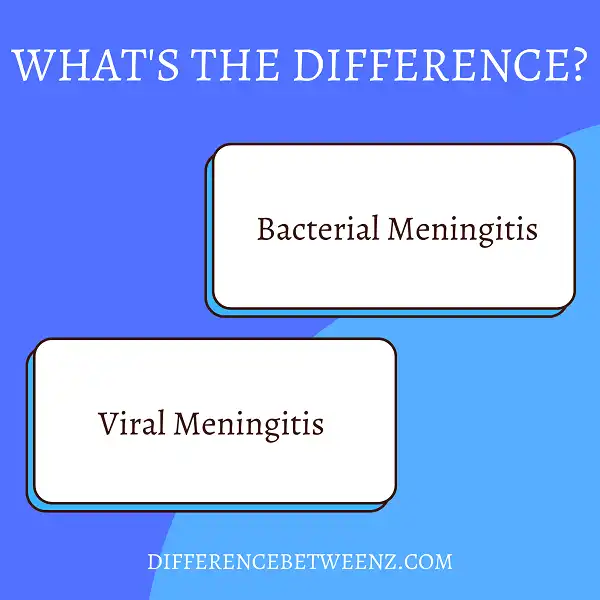Meningitis is a life-threatening illness that can have serious consequences if not treated quickly and accurately. Knowing the difference between bacterial and viral meningitis is essential in order to ensure adequate treatment for this condition. Even though both types of meningitis present with similar symptoms, understanding their distinct characteristics can be critical in choosing the right course of action when it comes to treatment. In this blog, we will explain what bacterial and viral meningitis are, how they differ from each other and why being informed about these two types of infections is so important.
What is Bacterial Meningitis?
Bacterial Meningitis is a serious infection of the protective membranes that cover the brain and spinal cord. While it is caused by a variety of bacteria, including meningococcal, E. coli, Streptococcus pneumonia, and Group B streptococcus, it can be deadly if not quickly diagnosed and treated correctly.
- Bacterial Meningitis is most commonly spread through contact with saliva or mucus from sneezing and coughing and can become even more severe if someone who has it does not receive treatment within twenty-four hours.
- Those affected may experience symptoms such as headache, stiff neck, fever, confusion, and fatigue – but these may vary depending on the type of bacteria present.
- Early diagnosis and treatment are key to prevention so those exhibiting these symptoms should always be seen by their doctor promptly in case bacterial Meningitis is causing them.
What is Viral Meningitis?
- Viral Meningitis is an illness caused by a virus attacking the tissues surrounding the brain and spinal cord. It is less severe than bacterial meningitis but can still result in serious complications if not treated right away.
- Symptoms usually start with a fever, headache, and stiff neck while more serious symptoms can include confusion, seizures, and sensitivity to light.
- Viral Meningitis can affect people of all ages, however, those over the age of 50 are at a higher risk of developing more severe symptoms. Fortunately, Viral Meningitis does not generally require hospitalization and is typically treated at home with medication for discomfort and rest for recovery.
Difference between Bacterial and Viral Meningitis
Bacterial and Viral Meningitis is both dangerous inflammatory illnesses of the membrane around the brain and spinal cord, but they have distinct characteristics in terms of severity, transmission, treatment, and other factors.
- Bacterial Meningitis is considered more serious due to its high mortality rate; it can be transmitted through physical contact with an infected person or indirectly through contaminated food or water.
- Conversely, Viral Meningitis is typically less severe than Bacterial Meningitis and generally resolves without requiring long-term treatment.
- It is spread through airborne particles present in coughs or sneezes by an infected person. Overall, Bacterial and Viral Meningitis require quick diagnosis and attention in order to treat them properly.
Knowing the differences between Bacterial and Viral Meningitis is key to protecting yourself and those you love from these infectious diseases.
Conclusion
Bacterial meningitis is more serious than viral meningitis, but both illnesses can cause complications. It’s important to get medical help right away if you think you or your child has either type of meningitis. Early diagnosis and treatment are critical to preventing serious health problems. If you have any questions, please be sure to ask your doctor or healthcare provider.


